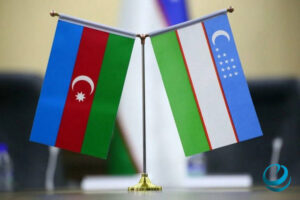
Azerbaijan and Uzbekistan have completed their first cross-border freight transportation using the new e-Permit system.
The system allows for the issuance and exchange of permits in a fully digital format, aiming to increase efficiency and reduce processing times for international road freight transport.
The first batch, including a truck from an Uzbek transportation company, arrived in Azerbaijan under the e-Permit system. This marks a step forward in the digitalization of cross-border transportation procedures between the two countries.
AZERBAIJAN, cross-border transportation, digital system, electronic permits, UZBEKISTAN
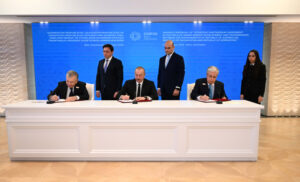
On November 13, as part of the COP29 summit, a ceremony was held to sign the Agreement on Strategic Partnership in the Development and Transmission of Green Energy between Uzbekistan, Kazakhstan and Azerbaijan.
In his speech at the event, President of the Republic of Uzbekistan Shavkat Mirziyoyev emphasized that renewable energy is not an economic goal, but a contribution to the future, the result of a sense of responsibility to future generations.
The environmental importance of the project was particularly emphasized. The energy to be transmitted is wind and solar energy, a renewable and clean resource that will reduce the impact on the climate.
Thus, the parties support joint efforts to protect the climate under the Paris Agreement and the Sustainable Development Goals.
It was noted that the signatory countries, having significant renewable energy resources, can make a significant contribution to the global energy transition.
Touching upon the efforts of Uzbekistan to develop a green economy, the Leader of Uzbekistan focused on the key aspects of large-scale work in this direction.
It was noted that about two gigawatts of solar and wind generation capacity is being commissioned annually in the country. In addition, an additional 2.6 gigawatts of renewable generation and 300 megawatts of energy storage systems will be connected to the grid by the end of this year.
By 2030, it is planned to increase the share of renewable energy sources to 40 percent, as well as to create 4.2 gigawatts of energy storage systems.
It was expressed that the economic effect of this project will be felt by all its participants.
The importance of accelerating the project implementation, including the establishment of a joint venture, development and approval of technical documentation and other procedures, was emphasized.
In conclusion, President Mirziyoyev reaffirmed Uzbekistan’s commitment to the joint implementation of this regional project.

In the first three quarters of 2024, Ukraine exported 12.6 thousand tons of frozen cattle meat, which is 20.3% less than in the same period last year.
This is evidenced by the data of the State Customs Service.
Revenue from exports of these products decreased by 18.9% compared to January-September 2023 – to $50.9 million.
Azerbaijan (37%), China (27.8%) and Uzbekistan (9.7%) bought the most Ukrainian frozen cattle meat during the first nine months of 2024.
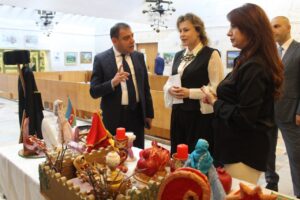
On October 17, on the eve of the Day of Restoration of Independence of the Republic of Azerbaijan, many honored guests gathered in the space of the National Library of Ukraine for Children to celebrate the Day of Culture of Azerbaijan: Distinguished Ambassadors Extraordinary and Plenipotentiary of foreign countries, readers and people’s artists of Ukraine. The event was supported by the Ministry of Culture and Strategic Communications of Ukraine.
The Republic of Azerbaijan is an incredible country with well-established traditions and a unique culture, where wonderful people live. The rich cultural heritage of Azerbaijan combines elements of the East and the West. This country has given the world not only outstanding scientists and artists, but also preserved unique cultural heritage that has been passed down from generation to generation.
Ukraine and Azerbaijan have strong political, diplomatic, and economic ties.
The National Library of Ukraine expresses its sincere gratitude to His Excellency Mr. Seymur Mardaliyev, Ambassador Extraordinary and Plenipotentiary of Azerbaijan to Ukraine, for the close, friendly cooperation with the National Library of Ukraine for Children.
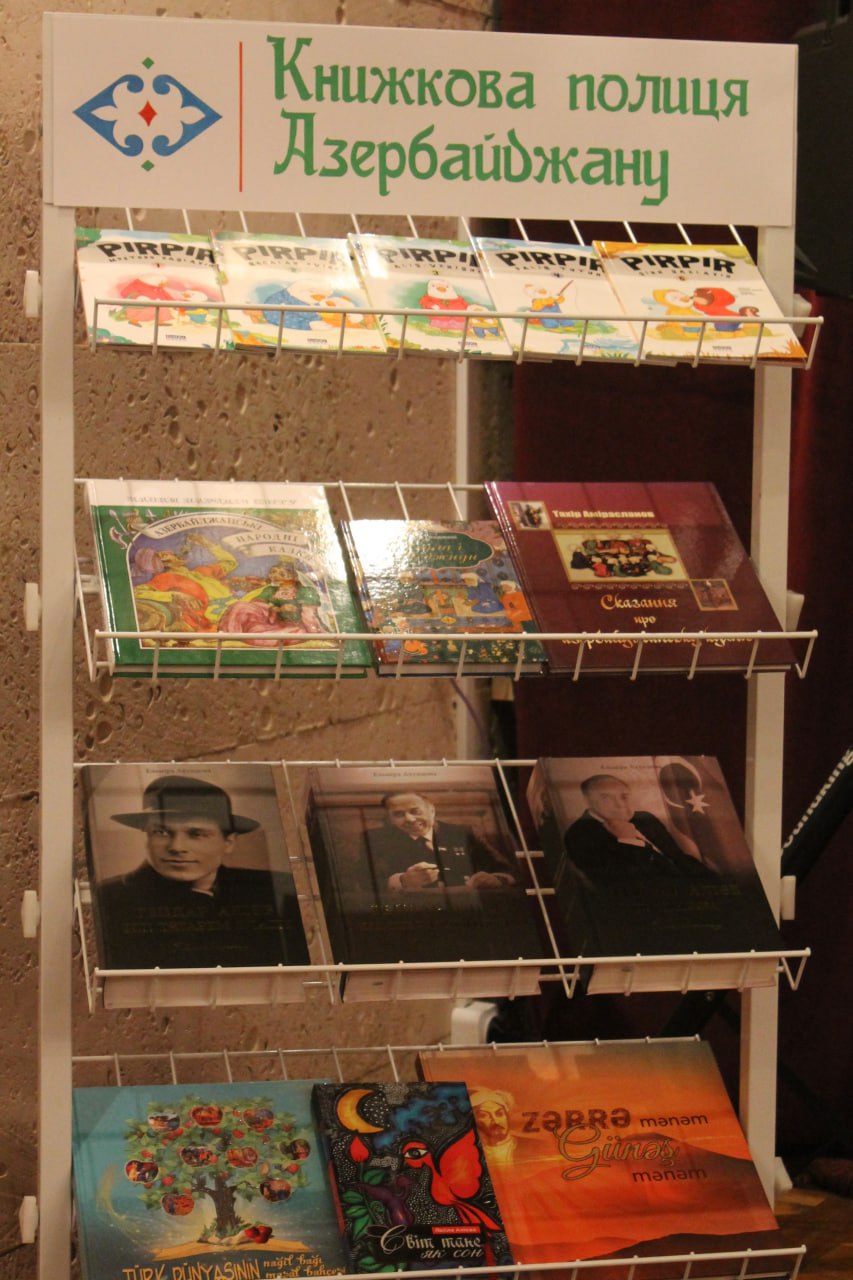
This year, the Embassy of Azerbaijan became a partner in organizing and conducting the III All-Ukrainian Environmental Children’s Drawing Contest “The Future of the Planet is in Our Hands”, and helped to involve the State Oil Company of the Republic of Azerbaijan SOCAR Energy in Ukraine in the co-organizers of the contest. Representatives of the Embassy and the oil company worked in the jury, participated in the press conference and awarding ceremony of the winners and prize-winners, and provided gifts for the children.
Thanks to Mr. Ambassador, new wonderful children’s books were added to the library’s collection.
Seymour Mardaliev and Alla Gordienko delivered their speeches on stage and assured the audience of a fruitful and strong partnership and friendship.
Part of the culture of every nation is its poetic word. As part of the national project “Ukraine Reads to Children”, Consul of the Embassy of the Republic of Azerbaijan in Ukraine Galibbay Agadashov and Assistant and Translator of the Ambassador Olena Nazarenko read the poem “The Bee” by the famous Azerbaijani children’s poet and prose writer Abdullah Shahig in Azerbaijani and Ukrainian.
As part of the celebration, students of the Irpin Humanitarian Lyceum “Linguist” named after Zarifa Aliyeva, headed by the deputy directors of the lyceum, visited the NBU for children for the first time. This educational institution also enjoys a true friendship with the Embassy of Azerbaijan.
On the second floor of the library, adults and children visited the book exhibition “Cultural Values of the Azerbaijani People”, decorated with household items. The exhibition will be on display at the National Library of Ukraine for Children for 10 days.
The Embassy of Azerbaijan in Ukraine treated all the guests of the holiday with delicious Azerbaijani delicacies.
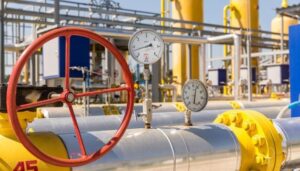
Natural gas supplies from Azerbaijan to Italy via the Trans Adriatic Pipeline (TAP) in January-July 2024 amounted to 6.075 billion cubic meters, which is 6.4% more than in the same period last year, the Italian Ministry of Environment and Energy Security reported.
The country imported a total of 35.273 billion cubic meters of natural gas in the first seven months of this year – 4.3% less than a year earlier. At the same time, the share of Azerbaijani gas accounted for 17.2%.
According to the agency, in July, Azerbaijani gas supplies to Italy amounted to 905 million cubic meters (an increase of 12.2% compared to July last year), or 21.5% of the total imports of natural gas, which is estimated at 4.201 billion cubic meters (a decrease of 1.8%).
In 2023, Italy received 9.988 billion cubic meters of gas from Azerbaijan via TAP (down 3.2% on the 2022 level). Azerbaijan plans to supply 9.6 billion cubic meters of gas to Italy in 2024. Azerbaijan started exporting gas to Europe on December 31, 2022.
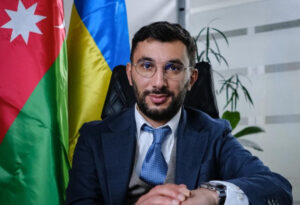
COP29 plays a key role in the development of green energy in Azerbaijan. This event will provide our country with a unique opportunity to demonstrate its responsible attitude to the use of natural resources by developing green energy.
Jalal Huseynov, chairman of the Ukrainian-Azerbaijani business association Terezi, told AZERTAD.
According to him, Azerbaijan will be able to show its commitment to sustainable development and investment in environmentally friendly technologies.
“This not only reduces dependence on traditional energy sources, but also helps attract international investment, exchange of experience and strengthen cooperation in the field of climate policy. Thus, holding COP29 will be an important step towards a sustainable and environmentally friendly future for Azerbaijan,” J.Huseynov emphasized.
He noted that our country is actively working on the development of alternative energy: “We have recently signed an agreement on an energy cable from Azerbaijan to the EU, which will allow Eastern European countries, including Ukraine, to connect to this system. This agreement opens up new opportunities for cooperation in the field of green energy.
Azerbaijan’s investments in green energy projects have great potential, especially in the context of the destruction of Ukraine’s energy infrastructure as a result of Russian aggression and the shortage of electricity generation during the war. These investments will help not only restore but also modernize Ukraine’s energy system, making it more sustainable and environmentally friendly.”
Jalal Huseynov said that Azerbaijan could also become a transit country for gas from Central Asia through Ukraine: “This was recently announced by the President of Ukraine Volodymyr Zelenskyy. Azerbaijan’s participation and experience in the development of new gas fields in Ukraine is also being considered, which indicates deep and promising economic ties between our countries.”